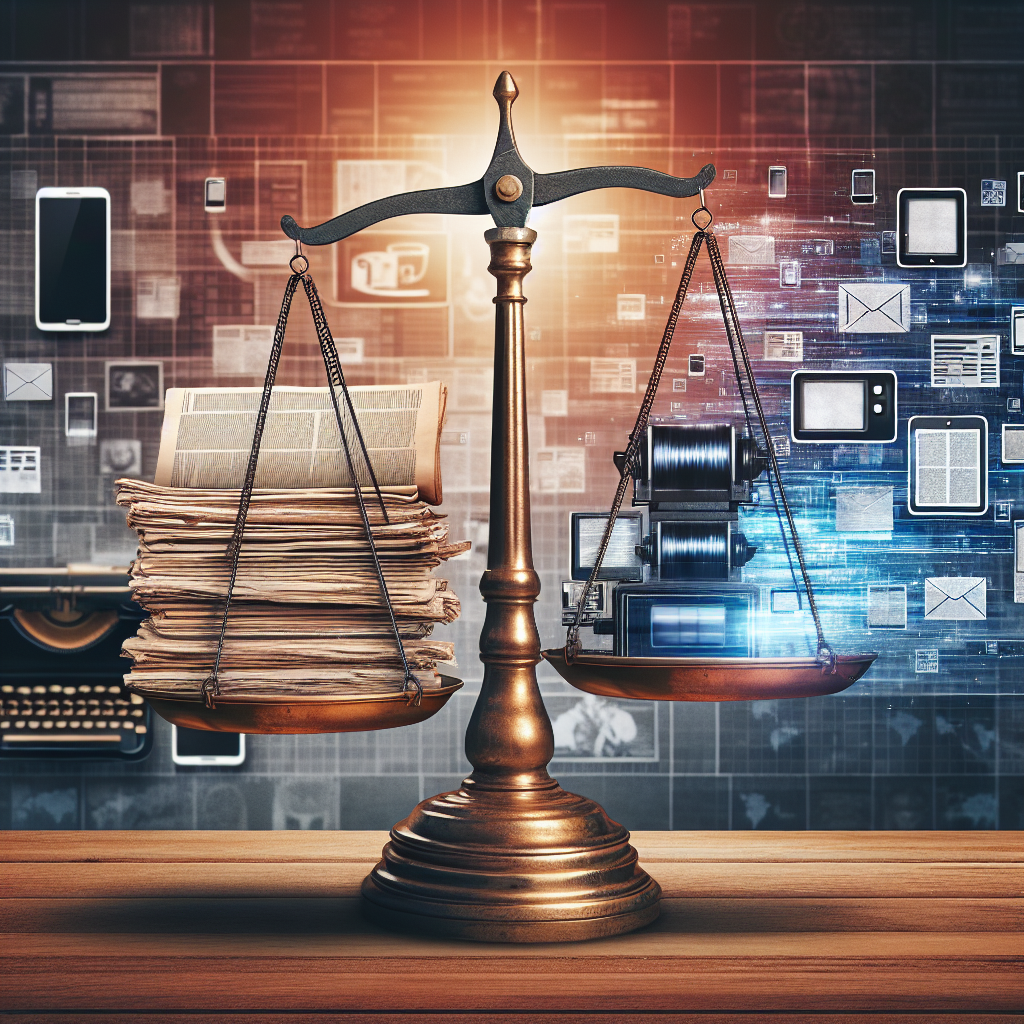The rise of artificial intelligence (AI) has revolutionized many industries, including journalism. AI-powered tools are now being used to expedite the news-gathering process, analyze data, and even write stories. While this technology has the potential to enhance the speed and efficiency of journalism, it also raises important ethical questions about accuracy, bias, and the role of human journalists.
The Ethics of AI Journalism: Balancing Accuracy and Speed
Accuracy is a cornerstone of journalism. Readers rely on news outlets to provide them with timely and accurate information. However, the use of AI in journalism can sometimes compromise accuracy. AI algorithms are only as good as the data they are trained on, and if that data is biased or flawed, the resulting news stories will be similarly flawed.
One of the biggest challenges in AI journalism is ensuring that the algorithms are trained on diverse and reliable sources of information. If the training data is skewed towards a particular perspective or demographic, the AI-generated stories will reflect that bias. For example, if an AI algorithm is trained on data from predominantly conservative news sources, it may produce stories that are biased towards conservative viewpoints.
Another ethical concern related to accuracy is the potential for AI-generated stories to spread misinformation. AI algorithms can quickly generate large volumes of content, which can make it difficult for human editors to fact-check every story. This can lead to the spread of false information, which can have serious consequences for public trust in journalism.
Speed is another key consideration in AI journalism. In today’s fast-paced news environment, journalists are under pressure to deliver stories quickly. AI tools can help journalists meet these deadlines by automating tasks such as data analysis and story writing. However, the need for speed can sometimes come at the expense of accuracy.
One of the ethical dilemmas that journalists face is whether to prioritize speed over accuracy when using AI tools. While AI algorithms can generate stories quickly, they may not always produce the most accurate or reliable content. Journalists must strike a balance between delivering news quickly and ensuring that it is factually correct.
Another ethical consideration related to speed is the potential for AI-generated stories to lack context or nuance. AI algorithms are designed to process large amounts of data quickly, but they may struggle to understand the subtleties and complexities of human behavior and emotions. This can result in stories that lack the human touch and empathy that are essential to good journalism.
The role of human journalists is another important ethical consideration in AI journalism. While AI tools can automate many aspects of the news-gathering process, they cannot replace the critical thinking, judgment, and creativity of human journalists. Human journalists play a crucial role in verifying information, asking tough questions, and providing context and analysis.
One of the ethical dilemmas that journalists face is how to integrate AI tools into their workflow without compromising their journalistic integrity. Some journalists may be concerned that AI tools will replace them or devalue their work. However, AI should be seen as a tool to enhance, rather than replace, human journalists. By working in collaboration with AI tools, journalists can leverage the speed and efficiency of AI while still maintaining control over the content and quality of their stories.
FAQs
Q: Can AI journalism replace human journalists?
A: While AI tools can automate many aspects of the news-gathering process, they cannot replace the critical thinking, judgment, and creativity of human journalists. AI should be seen as a tool to enhance, rather than replace, human journalists.
Q: How can journalists ensure the accuracy of AI-generated stories?
A: Journalists can ensure the accuracy of AI-generated stories by training algorithms on diverse and reliable sources of information, fact-checking stories before publication, and providing context and analysis.
Q: What are some ethical considerations related to the speed of AI journalism?
A: Ethical considerations related to the speed of AI journalism include the potential for AI-generated stories to lack accuracy, context, or nuance, and the need to balance speed with accuracy in news reporting.
Q: How can journalists balance accuracy and speed in AI journalism?
A: Journalists can balance accuracy and speed in AI journalism by prioritizing fact-checking, providing context and analysis, and maintaining control over the content and quality of their stories.
In conclusion, the ethics of AI journalism are complex and multifaceted. Journalists must navigate the challenges of accuracy, bias, speed, and the role of human journalists while integrating AI tools into their workflow. By prioritizing accuracy, providing context and analysis, and working in collaboration with AI tools, journalists can uphold the ethical standards of journalism while harnessing the power of AI to enhance their work.

